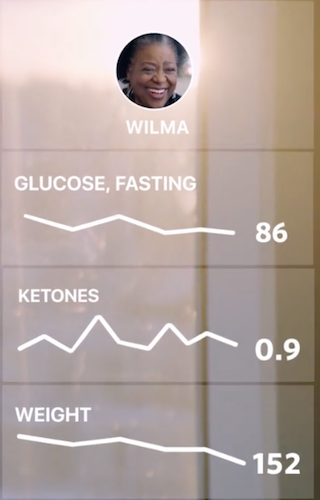 Remote patient monitoring combined with a special diet that cuts starchy carbs is helping some patients reverse their Type 2 diabetes, according to a recent study published in Diabetes Therapy. The investigation, complied by Virta Health, found that 94 percent of patients who were on insulin, using the Virta mobile tool, and altering their diet decreased or eliminated their insulin dosage by the end of the year.
Remote patient monitoring combined with a special diet that cuts starchy carbs is helping some patients reverse their Type 2 diabetes, according to a recent study published in Diabetes Therapy. The investigation, complied by Virta Health, found that 94 percent of patients who were on insulin, using the Virta mobile tool, and altering their diet decreased or eliminated their insulin dosage by the end of the year.
"We feel that it is really important to support a patient in many different ways," Dr. Sarah Hallberg, the study's principal investigator, said in a statement. "Making lifestyle changes can be hard, but the ability to ask questions whenever necessary provided patients with a support system to stay on a potentially life-changing program."
A total of 349 Type 2 diabetes patients enrolled in the study, which was unblined and allowed participants to opt in or out of the treatment options. In the study 262 decided to be part of the intervention group participated in Virta’s remote monitoring app and nutritional ketosis, which is a special diet that requires moderating protein consumption and reducing carbohydrates.
The platform gave patients access to a health coach, physician for medication management, biomarker feedback, nutritional, and behavioral change education and an online community.
While the diet was changing patients needs, the remote monitoring allowed continuous supervision by a health coach and doctor so patients could safely lower their medication and dosage, according to the study.
"Due to the unique structure of the trial and use of telemedicine, we helped prevent any significant hypoglycemic events," Hallberg said. "Instead of patients scheduling an office visit, they could log their blood sugar and ketone levels in the app. Then, both the patient and I could track their levels and make adjustments accordingly.”
After a year, patients in the intervention group lost an average of 12 percent of their body weight. The group also lowered their average HbA1c from 7.6 percent to 6.3 percent. Meanwhile, the 87 patients that did not receive interventions had no change in HbA1c, weight, or diabetes medicine over the year, according to the study.
San Francisco-based Virta health launched in March of 2017 with $37 million in funding. The startup was founded by a team of doctors, scientists, and technologists from leading universities like Stanford, MIT, and Harvard.
The study's findings were part of a five-year ongoing trial that is still underway. Researchers noted that most of the study participants were white, and that socioecconomic and psychosocial data were not collected.
"We have worked long and hard to establish an evidence-based treatment to reverse, not manage, Type 2 diabetes to change the course of the epidemic and help patients achieve better health,” Sami Inkinen, CEO of Virta, said in a statement. "We are committed to the success of each one of our patients and continually improving our approach in order to reach our goal of reversing Type 2 diabetes in 100 million people by 2025."
















